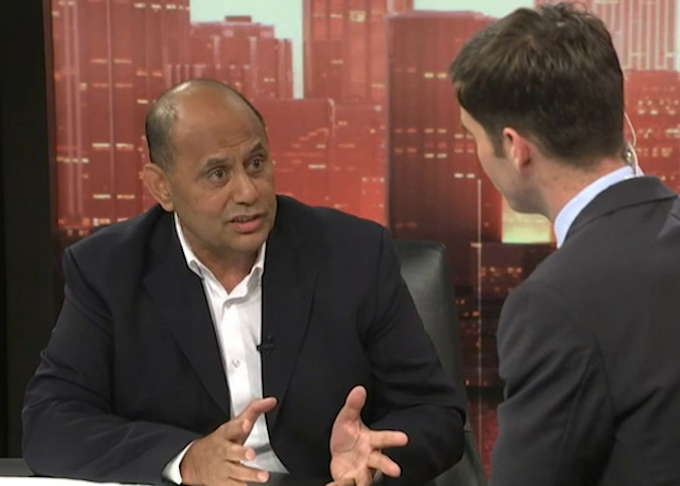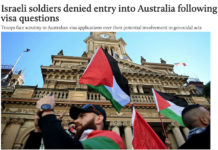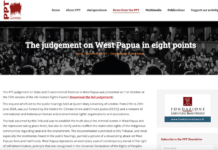
Prime Minister Jacinda Ardern’s hints this week that reforms will be pared back in 2023 — and an untidy interview by Broadcasting Minister Willie Jackson — has added to scepticism about the Aotearoa New Zealand government’s public media plan.
But while the media have aired angst about editorial independence, trust and costs, the opportunities have barely been addressed — or the consequences of sticking with the status quo.
“Do you think you’ve got too much on?” Newshub political editor Jenna Lynch asked the prime minister last Wednesday in one of several set-piece sit-downs with the media.
“Yeah, I do. So over the summer, we will be thinking about areas that we can pare back,” Prime Minister Ardern replied.
Lynch reckoned the creation of the new public media entity — Aotearoa New Zealand Public Media (ANZPM) — could be one of them.
“Are you ready for the RNZ/TVNZ merger to be dropped?” she subsequently asked Broadcasting Minister Jackson.
“I don’t know what you’re talking about. We’re committed to it and things are going well,” he replied bullishly.
But when asked if he was 100 percent sure, he answered with a question: “Do you know something else?”
Merger ‘not number one’
Ardern told Newsroom this week that “the merger is not number one on the government agenda”.
She also told its political editor Jo Moir a lot of people say they do not have a view on the merger because “there isn’t a lot of information out there about it”.
Yet it is almost three years since her government decided to do this — after which almost all the planning was behind closed doors until this year.
One opportunity to explain it last weekend went begging when Jackson appeared on TVNZ’s Q+A show. It was also the first time any TVNZ programme had addressed the merger outside of brief mentions in daily news bulletins.
It was condemned as a “trainwreck” by pundits and political rivals and added to perceptions the ANZPM plan had gone off the rails.
On The AM Show the next day, Ardern cited the potential collapse of RNZ as a reason for the merger, though as Gordon Campbell pointed out on Scoop.co.nz — RNZ will not collapse unless a government actually decides to collapse it.
But it was public support for the ANZPM project that was collapsing, according to a widely-reported Taxpayers Union-commissioned poll. Stuff reported 54 percent of poll respondents “did not want the state broadcasters to merge”.
(The Taxpayers Union does not want that either and campaigns against it on the grounds that it is wasteful spending).
‘Unsure’ about plan
Stuff also reported a quarter of people polled were “unsure” about the plan – and no wonder, when there has been so little in the media about what it might offer or how it could be improved, but plenty about the opposition to it among media (some with their own vested interests) and opposition political parties’ calls for it to be scrapped.
Stuff political editor Luke Malpass called the plan “a dog of a concept” and Today FM’s Duncan Garner urged the prime minister to suspend the plan immediately.
Newstalk ZB’s HDPA told her listeners “if Labour were smart they’d kill the merger”, while comparing the plan for two media outlets to the one for Three Waters.
She was not the only one.
In the NBR, Brigitte Morton said the RNZ-TVNZ merger was political repeat of Three Waters missteps. (Morten is a director for law firm Franks Ogilvie and has previously disclosed on RNZ the firm has clients taking legal action over Three Waters).
NBR political editor Brent Edwards — formerly political editor at RNZ — told Morten in an online interview that other countries — including Australia — have joined-up multimedia public media networks paid for by the public. So why not us?
“Australia and Britain are much bigger media markets so whilst you might have giants like the BBC, you’ve still got enough space for other big players to be quite influential,” Morten replied.
More complaints about ABC
“And having worked in Australian politics, there are much more complaints about the ABC than I’ve ever seen about TVNZ and RNZ,” Morten said.
The ABC is targeted by some politicians, the hostile Murdoch press and other media rivals — but it has shown it has the power to resist attacks and push back against political interference. And the public that actually pays for it seems to value it.
The ABC tracks public perceptions of its performance and value three times a year across the country and this year’s approval improved on last year’s.
Seventy eight percent of surveyed Australians believed the ABC performed a valuable role; the same proportion said ABC provided good quality TV and two thirds said it provided shows they personally liked to watch and hear.
Nine in 10 said the ABC’s online stuff was good. They were less keen on ABC radio, but it still had the approval of a clear majority.
The ABC 2022 annual report says “it continues to outperform commercial media in the provision of news and information about country and regional Australia” among both city and country and regional populations.
The study also found 77 percent of Australian adults aged 18-75 years trusted the information the ABC provided — significantly higher than the levels of trust recorded for internet search engines, commercial radio, commercial TV, newspaper publishers and Facebook.
But no-one has asked New Zealanders if they would like something like ABC or BBC in place of RNZ and TVNZ.
The government has yet to make a strong case for ANZPM to the public. This week the minster’s office said he was “not available this week” to discuss it on Mediawatch. (Next week he is in Europe).
‘Problem in search of a solution’
Meanwhile, vocal critics like Newstalk ZB’s Heather du Plessis-Allan say the plan “smacks of hidden agendas”.
“There is no plausible explanation for why we need this merger. What is the problem we’re trying to fix?” she asked on ZB.
One problem is we are spending almost as much as public money per capita on public media as Australia now – but getting nothing like as comprehensive a service from it.
The two networks the government plans to replace both attract core audiences that skew older than the national population – not a good sign for the future.
Stuff’s Glenn McConnell noted the Taxpayers Union survey from last month revealed higher levels of support for the media merger among people aged 18 to 39. A third of them supported it, a third opposed it, and the other third were unsure.
But while there has been a lot of media heat about that Willie Jackson TVNZ interview last weekend, one with the National Party leader on Morning Report last Wednesday may prove even more significant. For the first time, Christopher Luxon definitively said he would undo the media merger if his party wins the 2023 election.
“It’s important that TVNZ continues its commercial model. We’ve seen incredibly good media operations – like NZME, a commercial organisation that has done incredibly and TVNZ could continue to do the same,” Luxon told RNZ’s Jane Patterson later that day.
The opposition seems committed not just to preserving the status quo – but even restoring it — even if it is costly to do so.
Next month, it will be three years since an advisory group, including TVNZ and RNZ executives, first declared the status quo was not an option and persuaded Cabinet a new entity was the way to go.
Since then, the government and the existing entities have not found a way — or the willingness – to persuade the public of that — or their political opponents, wedded to a system within which a highly-commercial state-owned TVNZ is already effectively operating on a not-for-profit basis.
TVNZ already overlaps online with the much smaller RNZ — which has sold land, buildings and even grand pianos in recent years to maintain its services, even as government funding across the media swelled to more than $300 million a year currently.
The current government says it is committed to public media but has not committed much to its only real national public broadcaster since 2017 (until Budget 2022 when it allocated ANZPM $109m a year from 2023 to 2026).
Independent of each other, RNZ and TVNZ will also be even more vulnerable in the future to other media picking off their audiences, while hundreds of millions public dollars will still be sunk into various media with — potentially — less and less impact.
Even if merging RNZ and TVNZ is not best solution, the longer-term consequences and cost of that could end up being greater than opponents believe — financially as well as in terms of political risk and public opinion which sway pundits and politicians alike.
This article is republished under a community partnership agreement with RNZ.














































